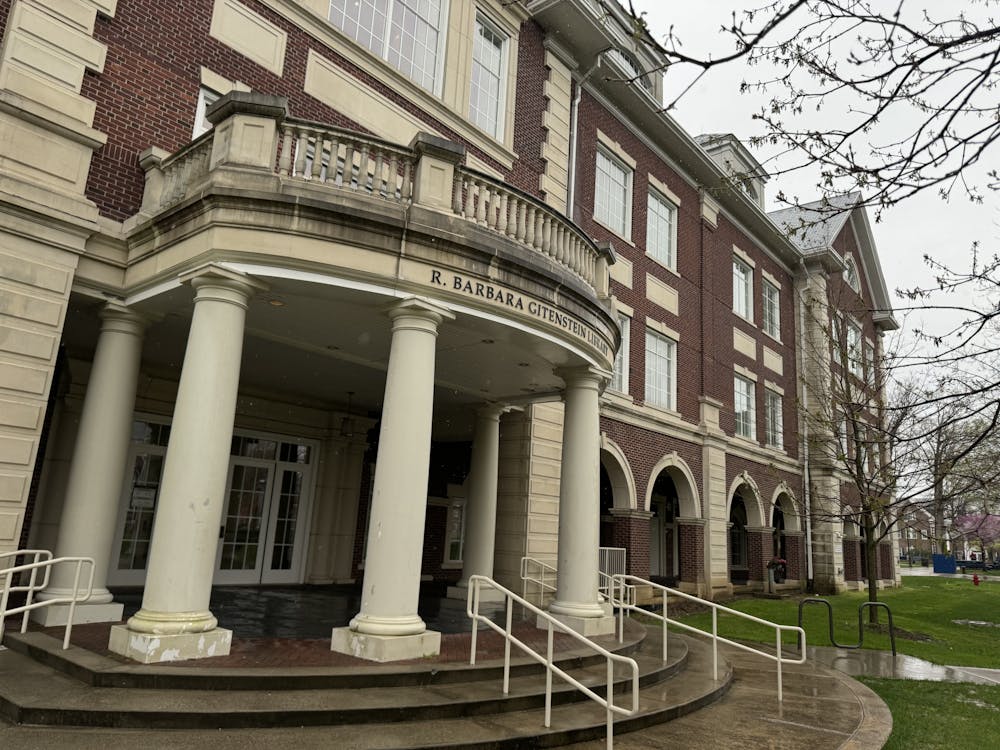By Chiara Piacentini
Staff Writer
After Interim President Michael Bernstein reported that patrons could soon bear the brunt of interlibrary loan costs, students across campus voiced their concerns over the issue and expressed their discontent. The suggestion that costs could be passed on to patrons came in an April 9 email that updated the College community on the progress of the LIONS Plan.
“The Library Operations Working Group has identified salary savings as a means of realizing over 30% of its budgetary goal,” he wrote. “Other options being explored include a reduction in acquisitions spending, and possibly having users be responsible for the cost of interlibrary loans.”
While one reason for this potential plan is to decrease the College’s expenses, Zoe Talbot, an English graduate student, suggested a more specific rationale as to why ILLs have been chosen as a target of the proposed cutbacks.
“The Library Operations Working Group was given the impossible task of identifying potential cuts within this specific part of our campus life,” she said. “Interlibrary loans may have been identified as the least harrowing of potential cuts.”
Whatever their reasons may be, many students, including Talbot, were outraged by this proposed change.
“ILL is essential and should not be barred to people who cannot afford it,” junior English major Emma Weniger said in the group chat of Sigma Tau Delta, an English honors society.
ILLs have been a free resource for any student to access materials that are not offered by the College’s library. This research tool is especially helpful for students exploring a research paper topic or writing a thesis or dissertation.
Kat Jorgensen, a senior English major and library archives student worker, argued that making ILLs a cost to students would be an “unethical and inane” decision, as this resource is already paid for by tuition.
“If our student fees are in part funding library services, then students should not have to pay twice for a service our work requires access to,” she said.
Taking a closer look at the numbers, in-state undergraduate students could be required to pay close to $4,000 in student fees on top of an almost-$15,000 tuition charge for the upcoming academic year, according to an estimate on the College’s financial aid site. Out-of-state tuition will be almost $6,000 more than the in-state figure. The final cost of tuition will be determined at the July Board of Trustees meeting.
With these existing high costs of tuition that increase between 2-4% each year, low-income students could bear most of the financial burden if this change is implemented.
“These obstacles to library users will only further discourage usage [of ILLs] and negatively impact low-income students at a disproportionate rate,” Jorgensen said.
For these reasons, Jorgenson has already taken a stand to push back against the proposal by creating an email template for students to send to the president’s office. Erica Altamura, the College’s Deputy Chief of Staff, responded to these emails on behalf of the president.
“Thank you for taking the time to review my recent update on the progress of the LIONS Plan Working Groups and reach out with your thoughtful comments,” Altamura wrote. “I want to assure you, all feedback, including of course your own, will be closely considered by the Working Groups as their work continues and final recommendations are made.”
While this reply leaves the fate of interlibrary loans undecided, Jorgensen suggested that the College’s student government could have more of an impact on this matter by getting involved in this situation.
“If these representatives have been looking for a way to stand up for their student body, then now is the time to speak out against financial barriers to information for our students and faculty,” she said.
Talbot also points out a pattern in the current administration’s decisions by mentioning that they should be more focused on how their choices will affect students.
“I believe that faculty and resources for students should be a priority, and certainly not where we decide to start cutting corners,” she said.
At the moment, there is no release date set for this suggested change within the LIONS plan as the Library Operations Working Group is still evaluating the feasible options before them. However, Bernstein does plan to send out a final report on working group recommendations next month.
Correction April 21: A previous version of this story included the estimated tuition costs for next year but did not include the fact that the costs are not finalized. The story has been updated with this information.
Correction April 22: A previous version of this story stated that Kat Jorgensen was the Gitenstein library archivist. She is actually a student worker in the archive. The Signal regrets the error.







